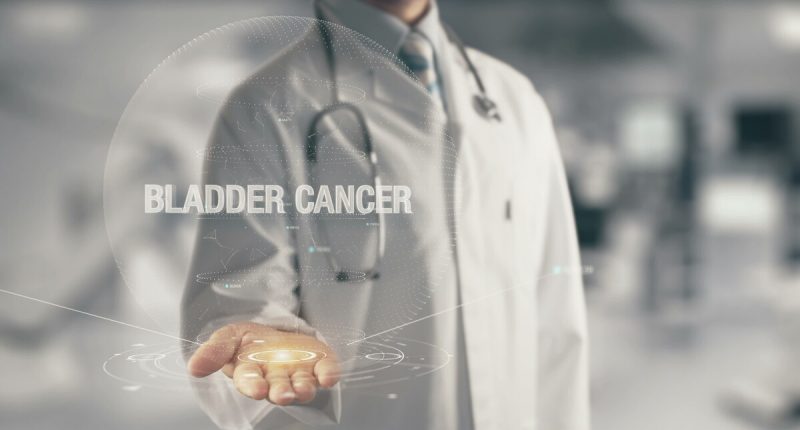In the next 10 years, it is estimated that the bladder cancer market will grow to $USD 5.4 billion, up from $USD 3.9 billion in 2023, a compound annual growth rate of 3.1%.
Fueling the market’s growth will be advancements in targeted therapies, immunotherapy and early detection methods. In line with this, novel drug programs, increased awareness and screening programs will grow the market and improve patient outcomes.
Bladder cancer is estimated to be the 10th most common cancer in the world, with roughly 75 to 85 per cent of patients presenting with Non-Muscle Invasive Bladder Cancer (NMIBC).
Meet Theralase Technologies (TSXV:TLT), a Toronto-based clinical-stage pharmaceutical company that is developing small molecule drugs able to specifically target and destroy cancer cells, leaving healthy cells unharmed.
The company is advancing its lead drug candidate RuvidarTM, a light-activated drug that is being investigated for Bacillus Calmette-Guérin (BCG)-Unresponsive NMIBC Carcinoma In-Situ (CIS), which it believes could be the next gold standard in bladder cancer treatment.
Theralase® provides update on bladder cancer clinical study
RuvidarTM, which is activated by the TLC-3200 Medical Laser System, is currently being evaluated in Canada and the United States, in a Phase II registration study for BCG-Unresponsive NMIBC CIS.
To date, 75 patients have been enrolled across 10 clinical sites (5 in Canada, 5 in the United States). Of the 75 patients, 68 have been evaluated at the first 90-day standard of care assessment.
The treatment is relatively straightforward, patients are administered RuvidarTM intravesically into their bladder (catheter inserted through their urethra into their bladder) for 60 minutes. They are brought to the operating room, placed under general anesthesia and the drug is activated intravesically by the TLC-3200 for another 60 minutes.
The study’s primary endpoint is to evaluate RuvidarTM’s efficacy (determined by Complete Response (CR)) at any point in time. The secondary endpoint is the duration of that CR for at least 12 months and is assessed at various standard of care time points; specifically: 90, 180, 270, 360 and 450 days with additional follow-ups at 540, 630, 720, 900 and 1080 days.
“This latest update on our bladder cancer clinical study continues to strengthen our understanding of the potency of RuvidarTM in the destruction of bladder cancer.” Roger DuMoulin-White, CEO of Theralase® Technologies, said in a press release. “It is a very effective drug and when activated by laser light, even more effective, providing both high efficacy and a high safety profile for patients.”
The study’s primary endpoint was achieved by 60.3 per cent of all patients treated, which is well above the 50 per cent guideline specified by the International Bladder Cancer Group (a consortium of top uro-oncologists from around the world). The interim, intent-to-treat analysis demonstrates that 26.5 per cent of all evaluable patients were able to maintain a CR for 12 months or more.
According to the interim clinical data, the median duration of response is 13.1 months +/- 3.0.
According to Kaplan-Meier’s Curve (estimation of duration of response), the duration of response at 12 months is ≥ 47.8 per cent, at 24 months is ≥ 42.6 per cent and at 36 months is ≥ 35.6 per cent.
The clinical study is in progress and the data presented is interim in nature, representing the clinical data collected to date.
Addressing an unmet medical need
According to the World Cancer Research Fund, at least 614,298 cases of bladder cancer were reported globally in 2022.
Internationally, it is the 10th most common cancer, sixth in men, with little to no advancements made in treating the condition, until recently. The U.S. Food and Drug Administration has recognized the unmet medical need for treating BCG-Unresponsive NMIBC with the issuance of its BCG-Unresponsive Guidance for Industry in August 2024.
Theralase® has the potential to lock in strategic partnerships, licensing deals or straight acquisition of its technology for non-dilutive funding thanks to the success of its ongoing clinical study that has the potential to disrupt the market.
About Theralase® Technologies
Theralase® Technologies is a clinical-stage pharmaceutical company focused on the research and development of light-activated compounds and their associated drug formulations.
The company operates through two divisions; specifically, the Anti-Cancer Therapy and the Cool Laser Therapy divisions. The Anti-Cancer Therapy division develops patented and patent pending small molecule drugs that are able to destroy various cancers, bacteria and viruses, when light, radiation, sound or drug activated.
As Theralase® advances its bladder cancer clinical study, investors won’t want to miss out on the company’s future milestones.
Join the discussion: Find out what everybody’s saying about this stock on the Theralase Technologies Inc. Bullboard investor discussion forum, and check out the rest of Stockhouse’s stock forums and message boards.
This is sponsored content issued on behalf of Theralase® Technologies, please see the full disclaimer here.

